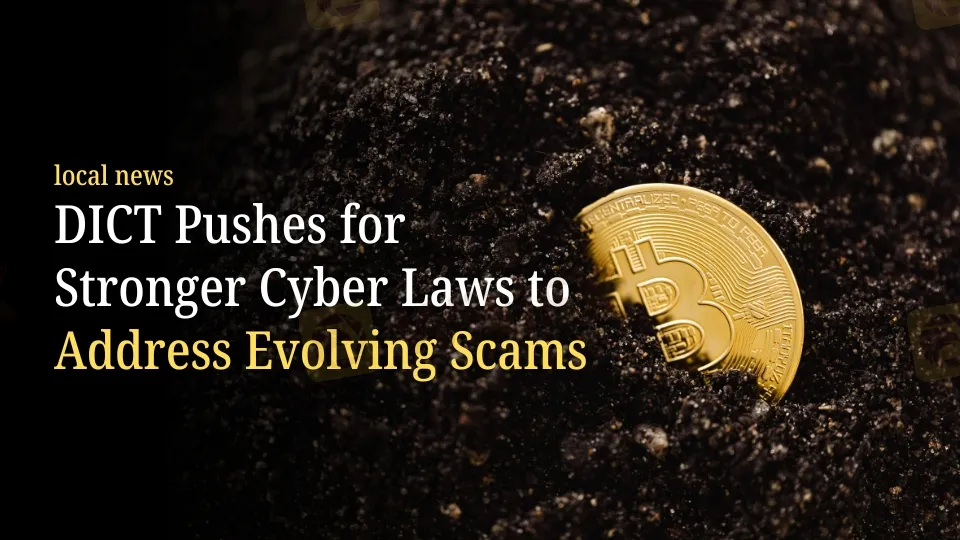简体中文
繁體中文
English
Pусский
日本語
ภาษาไทย
Tiếng Việt
Bahasa Indonesia
Español
हिन्दी
Filippiiniläinen
Français
Deutsch
Português
Türkçe
한국어
العربية
DICT Pushes for Stronger Cyber Laws to Address Evolving Scams
abstrak:The DICT is advocating for stronger cybercrime laws to tackle the growing and evolving threat of online scams in the Philippines.

In recent developments, the Department of Information and Communications Technology (DICT) has urged lawmakers to amend the country's cybercrime legislation in order to battle new and complex schemes. DICT Secretary Ivan John Uy provided information on how fraudsters have changed in response to prior measures, including the SIM Card Registration legislation.
The Problem with Text Message Scams
Despite the adoption of the SIM Card Registration Law, fraudulent SMS messages are on the increase once more. Secretary Uy stated that, while the registration effort has helped minimize scam operations, criminals have modified their plans and are employing new methods to fool people.
Scammers Adjust to the New Environment
Uy observed that, while law enforcement has effectively shut down large-scale fraud organizations, criminals are now working in smaller, more nimble groups. “It's become guerilla warfare now,” he added, stressing that these tiny groups move rapidly and adapt to escape discovery.

The Growth of “Drive-By Hacking”
Scammers are employing an unsettling new strategy known as “drive-by hacking.” This strategy includes crooks employing automobiles to hack into unsuspecting victims' mobile networks in local neighborhoods. The DICT has already detained some who utilize this approach, and it has been proven that much of the equipment used in these hacks is imported and illegal.
Attempts to Enhance Cybercrime Laws
To meet these changing risks, the DICT is expanding its field activities. They are also collaborating closely with Congress to update and improve existing cybercrime legislation. Secretary Uy underlined the need for a larger and more inclusive legislative framework to combat various forms of online crime, such as fraud, hacking, and online damage.
A New Approach to Cybercrime
“What we are actually working on with Congress is to amend the cybercrime law in order to have a more encompassing approach,” says Uy. He mentioned that other nations have implemented laws against online violence, which might serve as a model for the Philippines. This form of law would prohibit a wide range of internet behaviors that hurt individuals, including fraud and hacking.
Final Thoughts
The DICT's call for tougher cybercrime regulations is a crucial and vital move toward combating the rising menace of online fraud. With technology continually advancing, it is critical that the country's legal structure adapt as well. The Philippines can better safeguard its citizens from the ever-changing world of digital risks by updating its legislation to address the full range of online harms.

Disclaimer:
Ang mga pananaw sa artikulong ito ay kumakatawan lamang sa mga personal na pananaw ng may-akda at hindi bumubuo ng payo sa pamumuhunan para sa platform na ito. Ang platform na ito ay hindi ginagarantiyahan ang kawastuhan, pagkakumpleto at pagiging maagap na impormasyon ng artikulo, o mananagot din para sa anumang pagkawala na sanhi ng paggamit o pag-asa ng impormasyon ng artikulo.
Broker ng WikiFX
Exchange Rate






